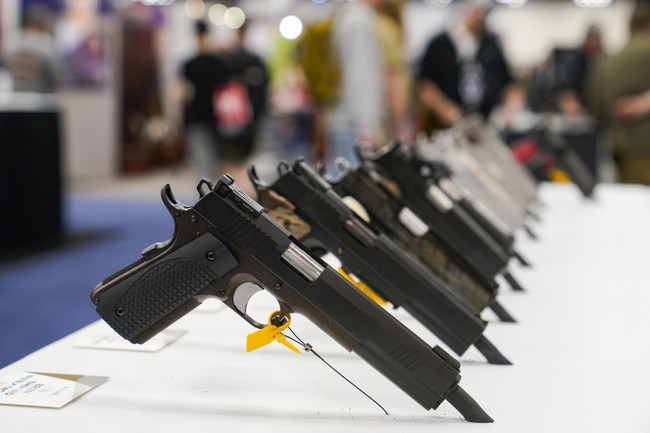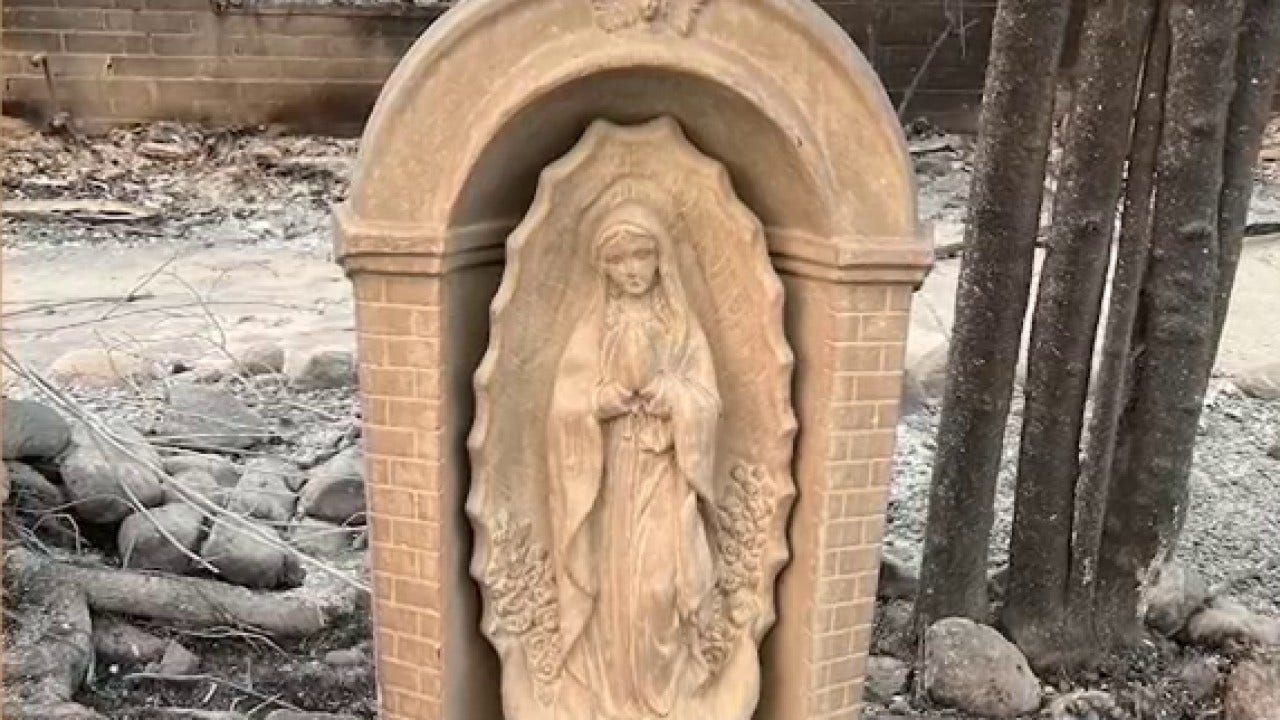A dangerous Venezuelan gang, known as Tren de Aragua (TdA), has expanded its criminal activities into the U.S., now occupying at least four apartment complexes in San Antonio, Texas, according to reports from law enforcement and the Daily Mail.
TdA, notorious for drug trafficking, human smuggling, and child prostitution in South America, has made its way into the U.S. amid a wave of Venezuelan migrants.
The gang has been implicated in crimes across Miami, Texas, Denver, and New York, unleashing a wave of violence wherever its members have settled.
BREAKING REPORT: ‘Evil’ super gang Tren de Aragua seizes FOUR APARTMENT COMPLEXES in San Antonio, Texas, in new terrifying show of strength..
DEMS WILL TELL YOU THIS IS NOT HAPPENING..
Just last week, a large police raid at a San Antonio apartment complex led to the arrest of… pic.twitter.com/5RhVeu8x3s
— Chuck Callesto (@ChuckCallesto) October 16, 2024
Trump Fighting For America Collectable Gold Coin – Fight! – Must See
The gang’s presence in U.S. cities has garnered more attention after ABC’s Martha Raddatz downplayed their reach in Aurora, Colorado.
However, just last week, a raid in San Antonio saw police arrest 19 individuals, including four members of the gang, in connection with illegal activities at the Palatia Apartments.
According to law enforcement, the gang had taken control of the Palatia Apartments for months, using the complex as a base for drug dealing and prostitution, including exploiting women and children.
🚨 Border Czar Harris’ immigration disaster is producing uglier results by the day.
The vicious Tren de Aragua gang has a new spin-off: “Pequeños Diablos de la 42.” They are forcing CHILDREN as young as 11 to commit crimes in NYC.
Bad policy WILL corrupt our youth! pic.twitter.com/eqdTlU5y4Y
— Rep. María Elvira Salazar (@RepMariaSalazar) October 16, 2024
Shockingly, this is just a fraction of the issue, as authorities confirmed that three other apartment complexes in the city are also occupied by TdA, although those locations remain undisclosed to protect ongoing investigations.
In a pre-dawn raid on October 5, hundreds of officers swarmed the Palatia Apartments after weeks of investigation. Neighbors described the scene as chaotic, with helicopters, drones, and heavily armed police storming the area. “Every department was here, they were wearing helmets and body armor,” said one resident.
The gang’s grip isn’t limited to Texas. Tren de Aragua has a history of infiltrating communities across the U.S., from Denver to the southern border in Juarez, Mexico. There, the gang kidnaps and exploits asylum-seeking migrants, further profiting from the humanitarian crisis caused by the Venezuelan regime.
As former Colorado ICE director John Fabbricatore explained, the gang is deeply involved in prostitution, which they use as a way to push drugs onto vulnerable people.
In South Texas, the gang has set up operations just north of San Antonio’s Migrant Resource Center, a shelter run by Catholic Charities. Thanks to an undercover officer embedded in the shelter, intelligence was gathered, leading to the recent raid at Palatia Apartments.
San Antonio Police Chief William McManus has vowed to continue the crackdown, stating, “We know who you are, and we’re coming for you.”
Tren de Aragua gang have been operating in San Antonio for months. Last week police raided an apartment complex and a few members were arrested.
Today DailyMail reported that the gang has now seized control of an additional 3 complexes.
Kamala’s America. pic.twitter.com/rMGJVdJ8Da
— Libs of TikTok (@libsoftiktok) October 16, 2024
The gang’s reign of terror isn’t over, with more arrests expected in the near future. However, locals remain fearful, with many worried that city officials aren’t fully acknowledging the threat.
Joe Jones, president of the San Antonio Firefighter’s Association, expressed his concerns, saying city hall is downplaying the gang’s presence, even as emergency responders worry for their own safety. Firefighters, dressed similarly to police officers, are unarmed, making them particularly vulnerable in gang-controlled areas.
Read the full article here


![Illegal Alien Gang Strengthens Hold on Texas Complexes in Kamala’s America [WATCH] Illegal Alien Gang Strengthens Hold on Texas Complexes in Kamala’s America [WATCH]](https://www.lifezette.com/wp-content/uploads/2024/09/2024.09.26-12.38-lifezette-66f555cbad05f.jpg)


![Ex-NFL Star in Hot Water Again After Fleeing the Scene of a Crash [WATCH] Ex-NFL Star in Hot Water Again After Fleeing the Scene of a Crash [WATCH]](https://www.rvmnews.com/wp-content/uploads/2025/01/2025.01.12-10.04-rvmnews-678393a65aa5f.jpg)

![Rand Paul Raises Serious Questions About Federal Aid For Wildfires in California [WATCH] Rand Paul Raises Serious Questions About Federal Aid For Wildfires in California [WATCH]](https://www.rvmnews.com/wp-content/uploads/2024/11/2024.11.15-07.21-rvmnews-67379f4f3d85d.jpg)


![Tim Pool Comes Unglued On the Media, Government Attacks on Tommy Robinson [WATCH] Tim Pool Comes Unglued On the Media, Government Attacks on Tommy Robinson [WATCH]](https://www.rvmnews.com/wp-content/uploads/2025/01/2025.01.12-10.45-rvmnews-67839d6345a1a.jpg)